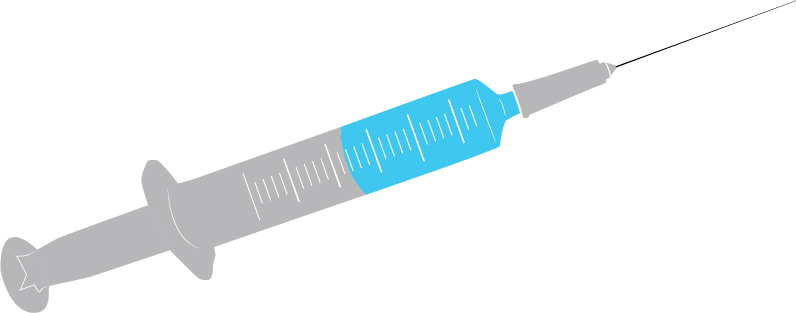Proud to be vaccinated
February 22, 2015
The measles virus is present again in the United States, and parents are questioning whether to vaccinate their children with the measles, mumps and rubella (MMR) vaccine.
Those who choose not to vaccinate may be doing so for the safety of their child.
Autism’s link to the vaccine is one of the greatest concerns since the first vaccination is received around the time a child would be showing signs of autism.
But, the vaccine safety experts at the American Academy of Pediatrics and vaccine safety experts of the Center for Disease Control concur there is no link between the MMR vaccine and autism.
In fact, Immunize Action Coalition, in its article, “MMR vaccine does not cause autism,” stated that there are no credible studies to prove there is a link between the vaccine and autism to begin with.
The Immunize Action Coalition also stated that the origin of the possible link comes from a 1998 study in the United Kingdom by researcher Andrew Wakefield. Wakefield published a study claiming the vaccine caused inflammatory bowel disease that sent proteins to the bloodstream eventually causing brain damage.
This study, however, is not thought of as credible. Shortly after the article was published, Wakefield was found to be funded by evidence-seeking lawyers trying to fight the vaccine manufacturers.
There are studies that prove there is no link whatsoever between autism and the MMR vaccine, such as “Lack of Association between Measles Virus Vaccine and Autism with Enteropathy: A Case-Control Study” published in the Public Library of Science. This study, conducted in 2008, found there was strong evidence proving against the association Wakefield found between autism and MMR vaccine exposure.
With proof against the link of autism and the MMR vaccine, what is at risk if a parent still does not vaccinate? Is the measles really that big of a problem? Yes.
Even if parents think their children will survive the virus, there are health concerns that follow, such as an ear infection, pneumonia, or even deafness.
But, what if one child’s life is not the only one at risk? When a parent chooses not to vaccinate, they are endangering another child’s life who has not been vaccinated.
If a child has the measles, it will be approximately seven to 14 days for the symptoms to show, usually a cough with a high fever and runny nose, but he or she will be transmitting the virus in that span of time. Any child who comes in contact with an infected child is at risk. The virus can survive up to two hours on any surface and still cause illness.
The Centers for Disease Control (CDC) describes the possibility of measles re-establishing in the United States as possible. The cause in this circumstance is from people choosing not to vaccinate because of personal, religious, or philosophical reasons.
The CDC website further explains a theory of pocket outbreaks. Research on the subject convey that those who do not vaccinate usually are members of a specific community that meet regularly. “When measles gets into communities with pockets of unvaccinated people, outbreaks are more likely to occur.”
This is exactly why I am proud to be vaccinated. I do not wish to cause any possible harm to a child not yet vaccinated.
Because there is no evidence proving the classic controversy linking autism to the MMR vaccine, the biggest risk of vaccinating or not is whether you want your child or your country to be susceptible to the measles.
Choose wisely.





